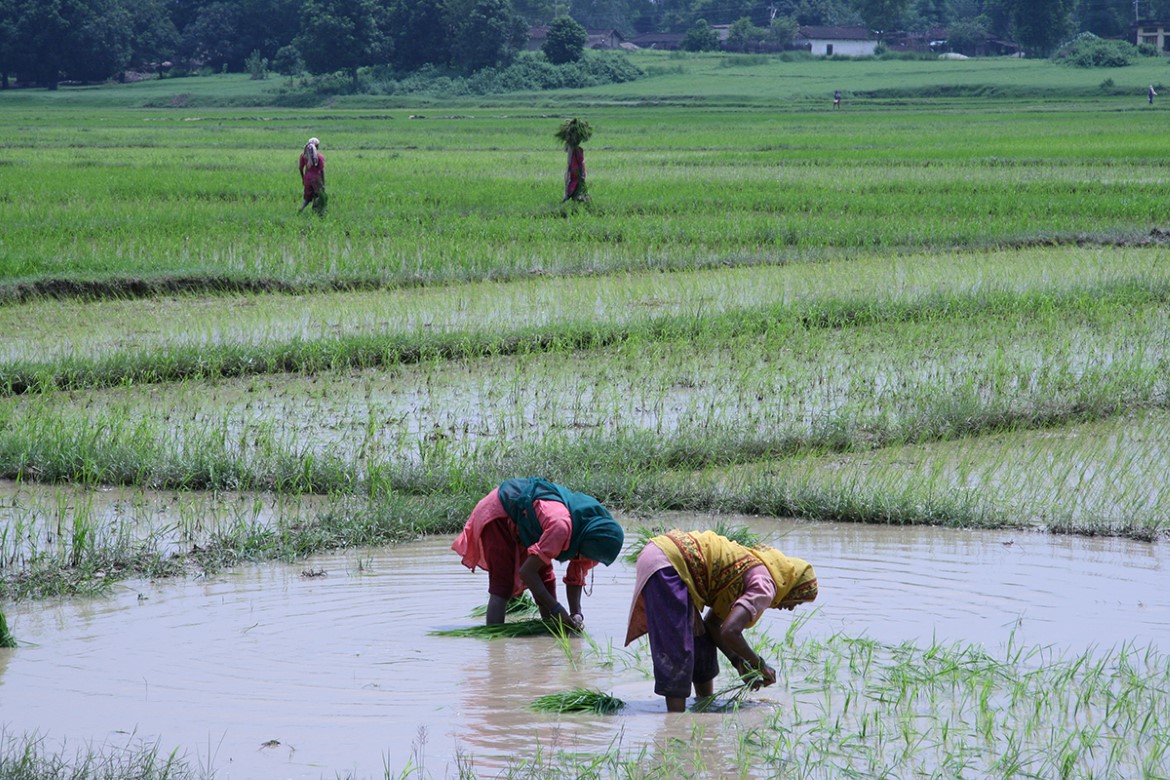
Sustainable natural resource management for climate change adaptation in the Himalayan region
Project title: Sustainable natural resource management for climate change adaptation in the Himalayan region
Background
The prevailing unsustainable practices and approaches to development activities worldwide, and the increasing contribution of developing countries, impacts on the natural resource base and environment, leading to global-scale changes such as trans-boundary water issues, long range transport of pollution, deforestation and climate changes.
South Asia is particularly vulnerable to climate change due to its geophysical and hydro climatic characteristics. Along with the loss of glaciers, climate change may have significant negative impacts on the vulnerable climate-dependent communities, particularly the rural poor, women and marginalized groups.
Limited knowledge is available on how climate hazards are impacting livelihoods resources and how marginalized communities are responding to climate change with low adaptive capacity. There is an urgent need to produce more and better research and a technically trained and qualified work force to influence the national policies in all related sectors to deal with the above issues.
Transformation of attitudes through higher education and research
The project targets four universities in South Asia with the aims of developing education and research capacity with assistance from the Norwegian University of Life Sciences in teaching, curriculum revisions, supervision of master and PhD candidates and research. Academic staff at the partner institutions will strengthen their research and teaching capacity through PhD-qualification or Post-doctoral research. Programmes and courses at post-graduate level will be strengthened with new curricula on climate change adaptation and mitigation and sustainable resource management. The project believes that strengthened capacity of the involved universities will create public awareness and sensitization to key issues and problems of achieving sustainable development and adaptation and resilience to climate change.
Building new capacity in Bhutan
The project builds upon lessons learned from experiences of past education and research projects in the Himalayan region, but extends collaboration to Bhutan, which has a very similar terrain and socio-economic situation as to Nepal and Pakistan. As a small, mountainous nation without access to coastal areas, Bhutan is highly vulnerable to biophysical as well as economic and trade implications of climate change.
The Royal University of Bhutan, established in 2003, is the only university in Bhutan. As a young university it has yet to launch post-graduate level programs and incorporate research into degree programs. The new master program, PhD enrolment of faculty and training of administrative and support staff aim to capacitate the university in high priority areas for Bhutan.
Key goals and achievements
Overall goal
Human capacity developed in order to impact the formulation and implementation of policies focused on sustainable resource management and climate change adaptation and resilience in the partner countries. The means to achieve this is through enhanced higher education and research capacity related to climate change, natural resource management and environment in a coordinated network of four universities in South Asia.
The objectives of the project are
- Graduate degree programs dealing with climate change, environment and sustainable natural resource management (NRM) formulated/updated (increased capacity to deliver high quality education in sustainable NRM).
- Human capacity developed (more qualified graduates produced) to address climate change adaptation and mitigation.
- Research capacity strengthened (higher quality research conducted) at universities in the South. 4. National policy recommendations on climate adaptation and sustainable natural resource management incorporated. 5. Networking and knowledge sharing related to climate change adaptation and mitigation among universities in the South and North achieved.
Total budget
2013-2018: 18 million NOK
Contact persons for the project
Roshan Man Bajracharya, Professor, Dept. of Environmental Science and Engineering, Kathmandu University
E-mail: rmbaj@ku.edu.np
Bishal Sitaula, Profess, Department of International Environment and Development Studies, Norwegian University of Life Sciences
Email: bishal.sitaula@nmbu.no
